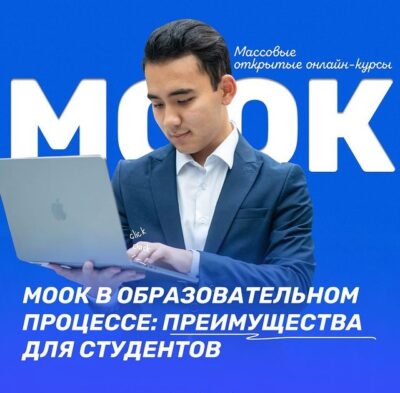In recent years, Massive Open Online Courses (MOOCs) have emerged as a transformative force in the world of education. These online courses, offered by universities, organizations, and platforms, have gained immense popularity due to their accessibility and flexibility. While MOOCs offer numerous advantages for both learners and institutions, today, we’ll focus on the benefits that MOOCs bring to students.
Access to World-Class Education: One of the most significant advantages of MOOCs is that they provide students with access to courses from top universities and experts from around the world. Regardless of your location, you can enroll in courses taught by renowned professors and industry leaders, democratizing education on a global scale.
Flexibility and Convenience: MOOCs break free from the constraints of traditional classroom schedules. Students can learn at their own pace, fitting education around their work, family, and other commitments. This flexibility empowers lifelong learners to continually upskill and pursue their interests.
Cost-Effective Learning: Many MOOCs are offered for free or at a fraction of the cost of traditional education. This cost-effectiveness removes a significant barrier to higher education and allows students to explore diverse subjects without accumulating substantial debt.
Diverse Course Offerings: MOOC platforms host an extensive range of courses spanning various disciplines. Whether you’re interested in computer science, art history, or business management, you can find a MOOC that aligns with your interests and career goals.
Interactive Learning: MOOCs often employ interactive elements such as quizzes, assignments, and discussion forums. These features promote active engagement and enhance the learning experience. Additionally, peer review and group projects foster collaborative skills.
Skill Development: MOOCs are not limited to academic subjects. Many courses focus on practical skills and professional development. Students can acquire in-demand skills, certifications, or even complete micro-credentials to boost their resumes and career prospects.
Global Networking: MOOCs attract a diverse and international student body. This diversity exposes learners to different perspectives and cultures while allowing them to build a global network of peers and professionals.
Self-Directed Learning: MOOCs encourage self-directed learning and critical thinking. Students must take responsibility for their education, managing their time and setting personal goals—a skill that’s valuable in any field.
Continuous Learning: Lifelong learning is becoming increasingly important in today’s rapidly changing job market. MOOCs enable individuals to stay updated with the latest trends and advancements in their chosen fields.
No Geographic Boundaries: MOOCs eliminate geographic barriers, making education accessible to individuals in remote or underserved areas where traditional educational institutions may be scarce.
According to the rules for organizing the educational process for distance learning, students can master up to 20% of disciplines “through non-formal education, including through MOOCs” (details must be obtained from the Academic Department of AITU).
In conclusion, MOOCs have revolutionized the educational landscape by making high-quality learning experiences available to a broader audience. They empower students to take control of their education, offering convenience, affordability, and access to a wealth of knowledge. Whether you’re a working professional looking to upskill, a student supplementing your formal education, or someone with a thirst for knowledge, MOOCs offer a world of opportunities for personal and professional growth. Embracing MOOCs in the educational process can truly be a game-changer for students worldwide.
What do AITU students and guests know about MOOCs? Let’s get a look.


